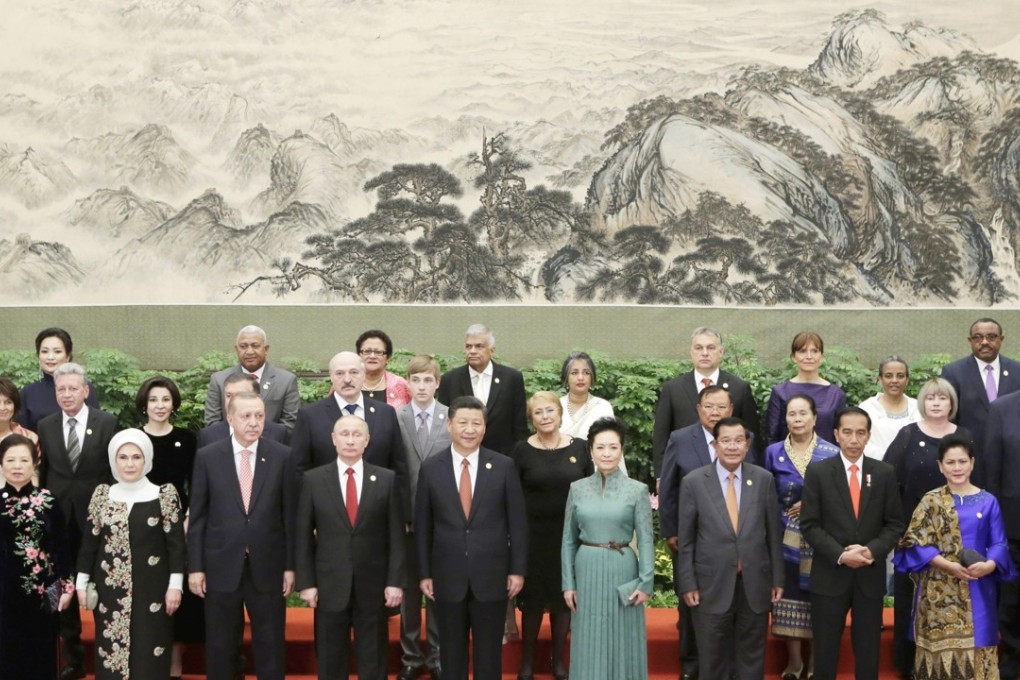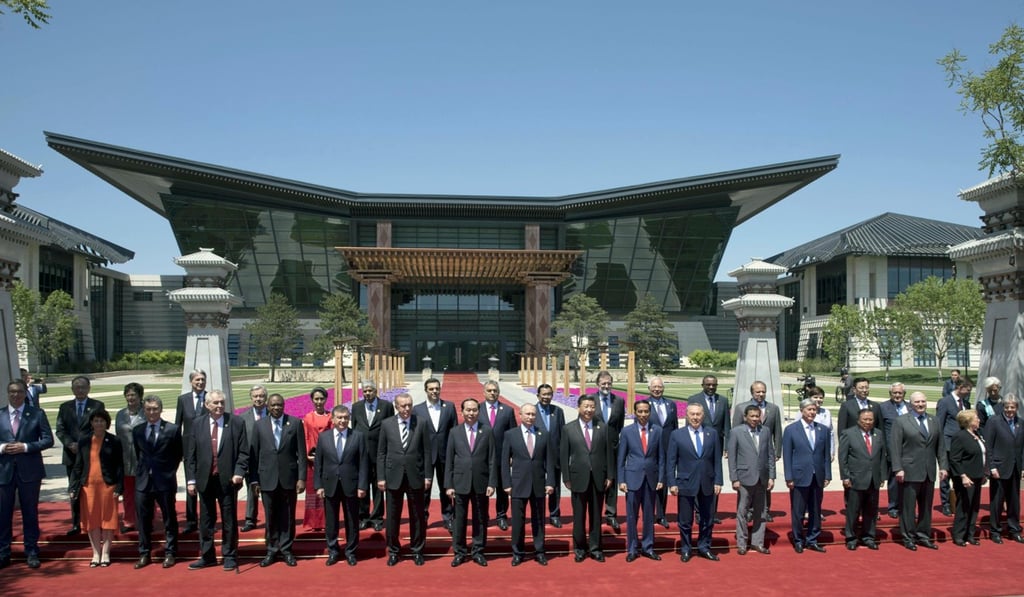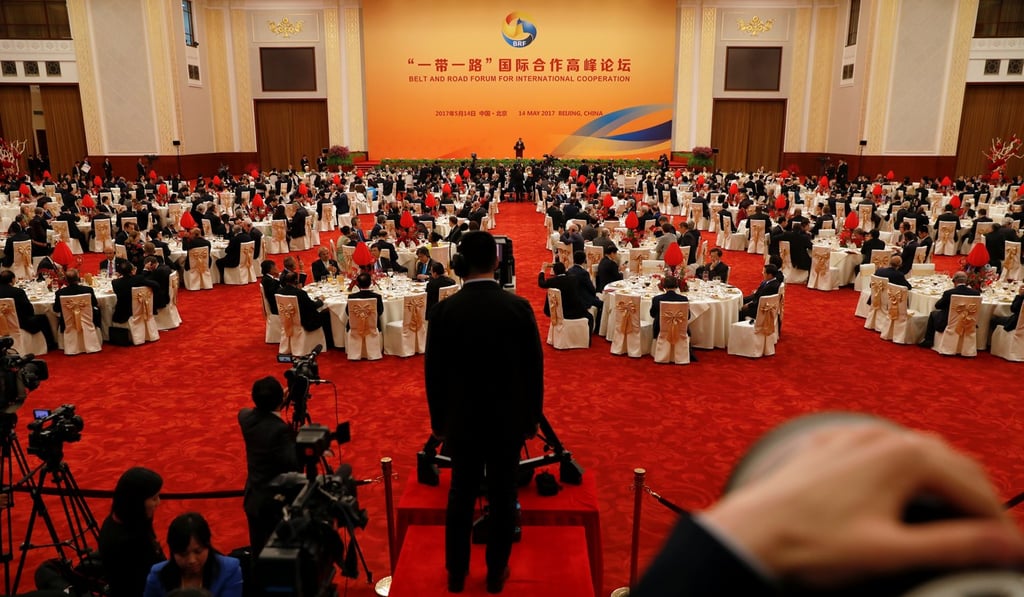China Briefing | New Silk Road: Why China should be wary of overconfidence
Underneath the excitement for President Xi Jinping’s ‘project of the century’ lie dangers and risks not often discussed

The optics tell it all: a confident and smiling Xi Jinping ( 習近平 ) stood in front of a giant landscape painting titled This Land is So Rich in Beauty and shook hands with more than 30 heads of state and international organisations lining up in the Great Hall of the People on Sunday night.
Broadcast live on national television, and repeated numerous times in prime-time newscasts over the weekend, those images encapsulated China’s growing political and economic influence on the world stage as it hosted the two-day summit on the “Belt and Road Initiative” last week.
In his keynote speech to the summit, the president hailed the initiative as the “project of the century” as he announced tens of billions of yuan in financing for the ambitious programme that has promised to transform the Eurasian and African infrastructure landscape as never before, and bring tremendous benefits in investments and trade for those countries involved.

Equally, or perhaps even more importantly, the summit will also enhance Xi’s standing at home, where the Communist Party is boosting his already formidable authority as the “core” of the leadership ahead of a key congress in autumn this year when Xi will orchestrate a new leadership line-up for another five-year term.
Opinion: China’s robber barons take collusion to a whole new level

